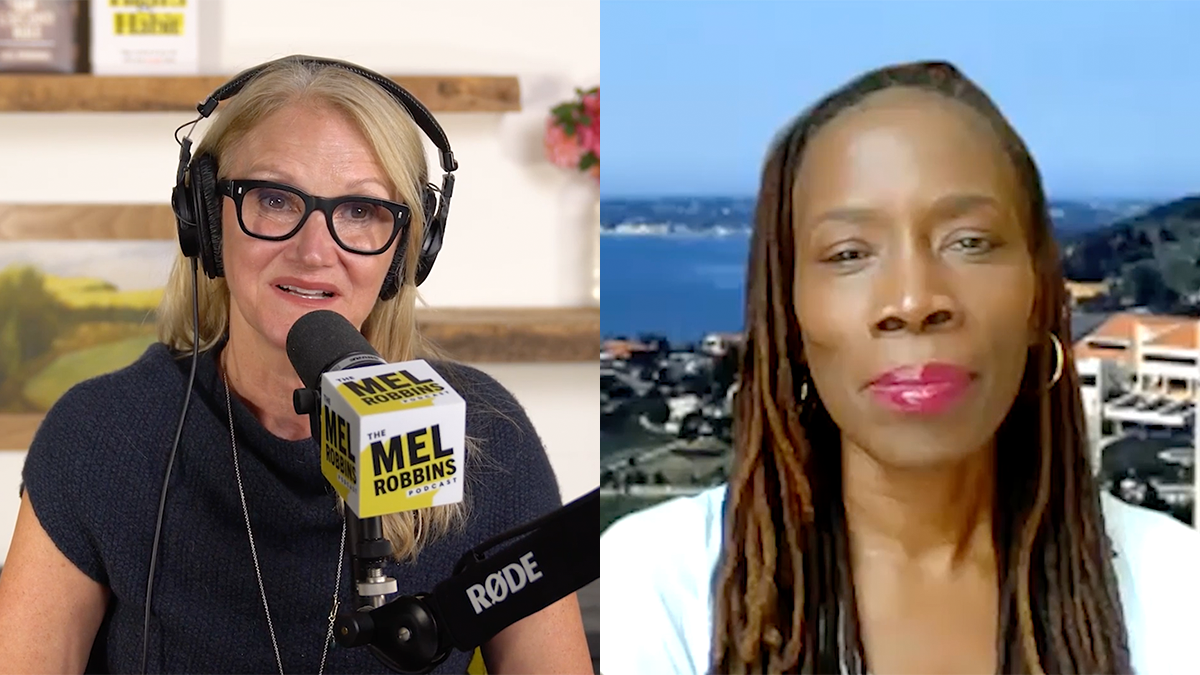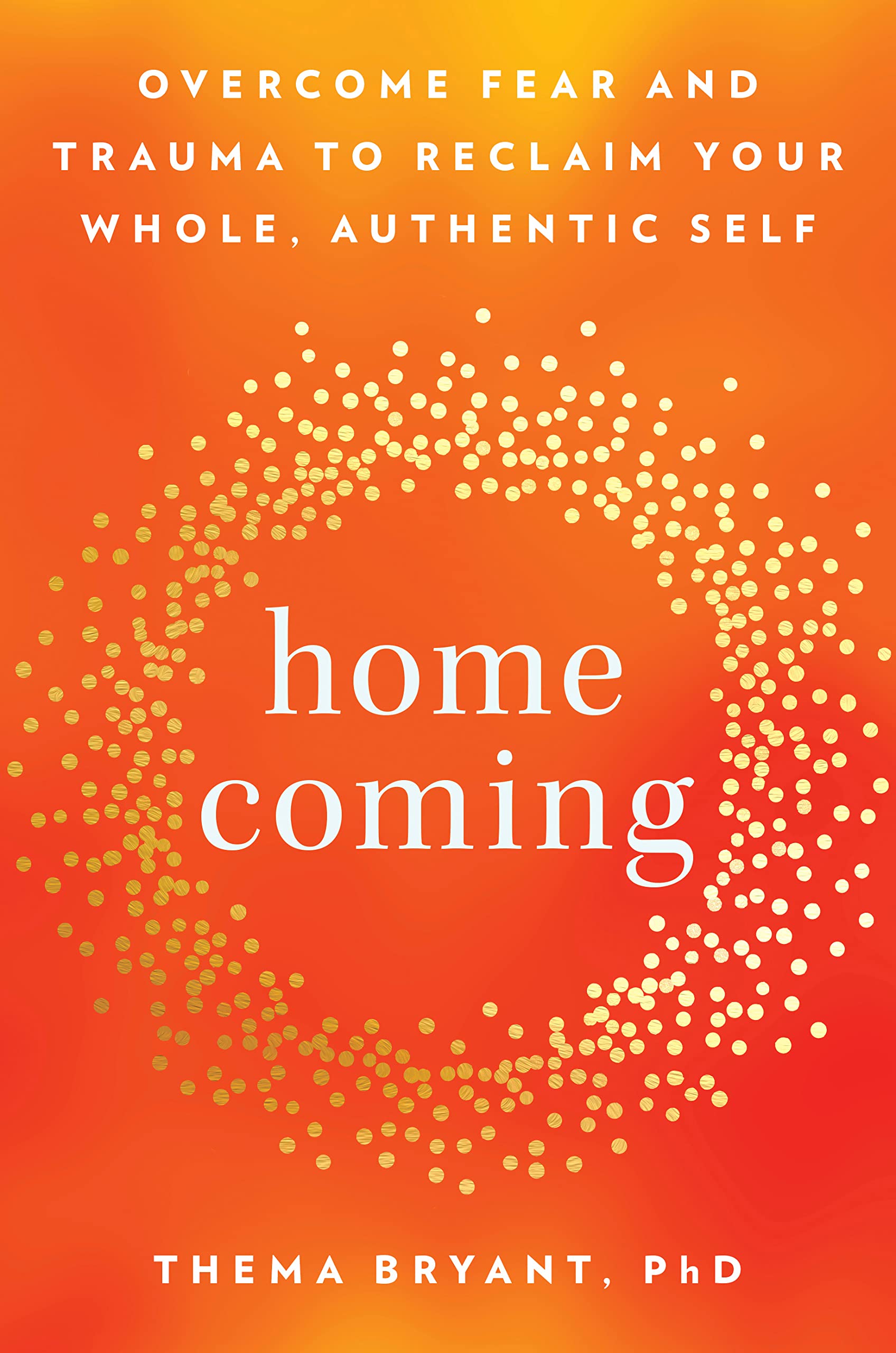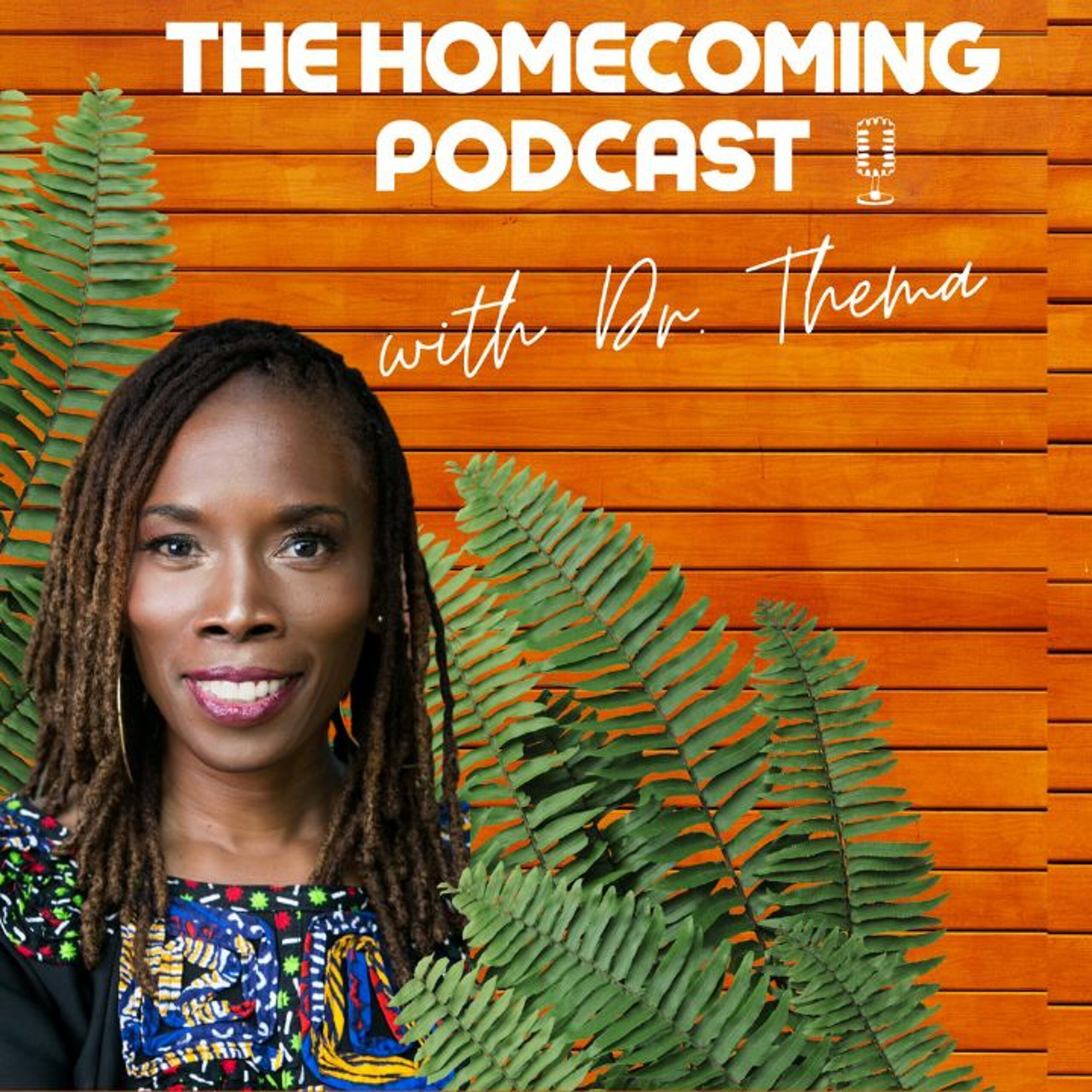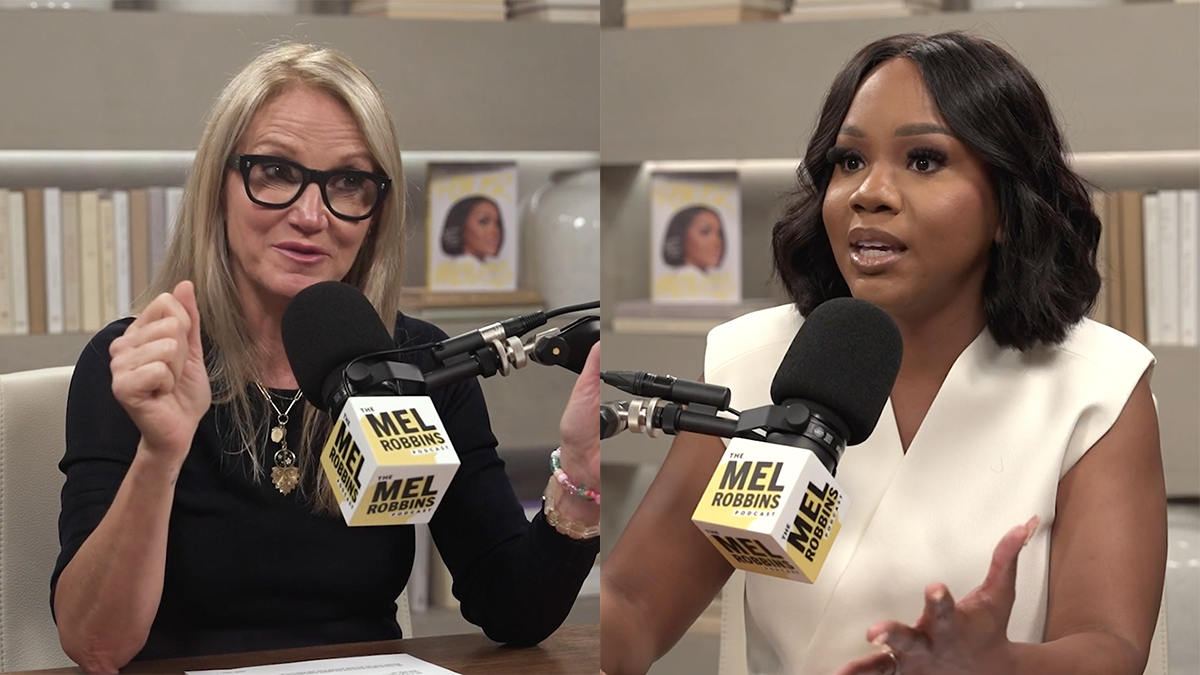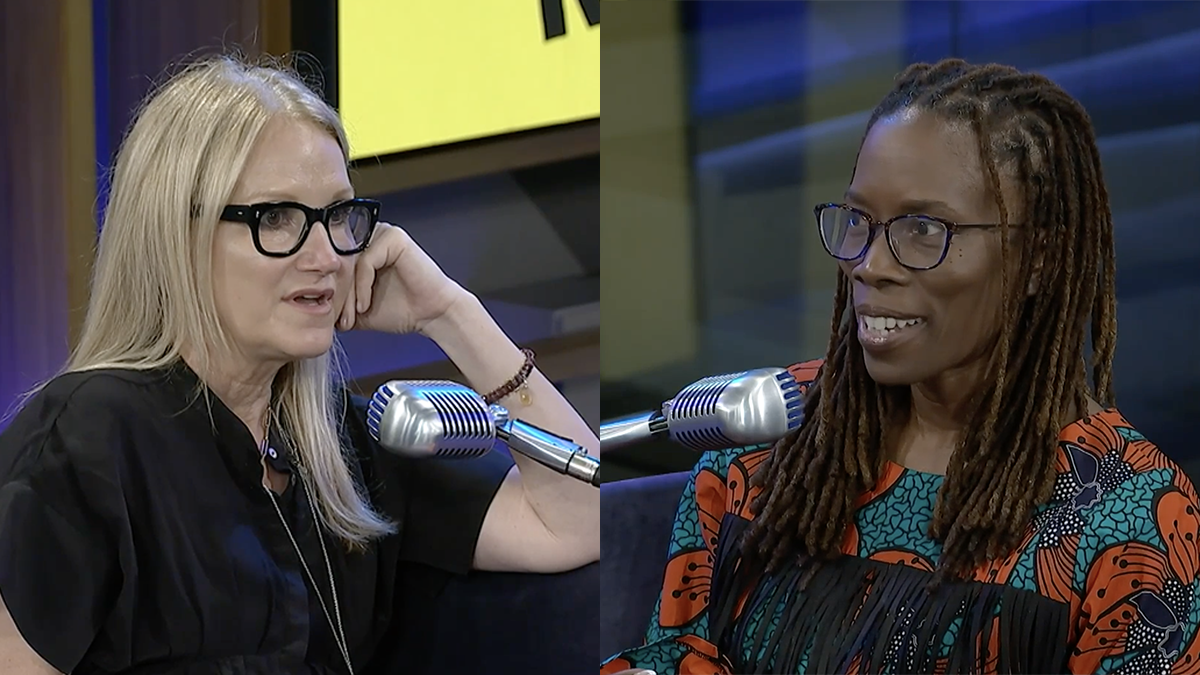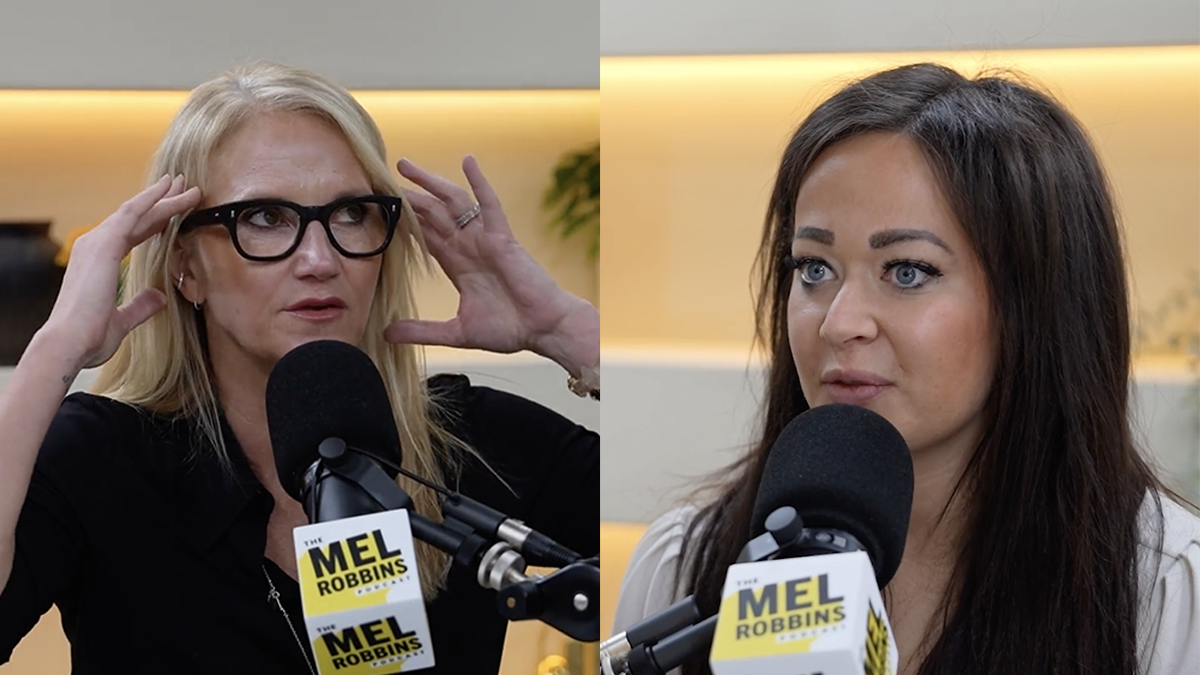Dr. Thema Bryant (17:44):
Yes. This moment does not have the final say on my life or the life of my community. This is a moment. And so we are mindful that we take in the truth. We're not in denial. We see what is, but we know that that does not mean this is all that can ever be. And then I would also say in closing, trauma affects us, but it doesn't define us. My heart feels the weight, but there is still lightness available to me. There is still softness available to me, and I don't wait for it from out there. I give it to myself from in here.
Mel Robbins (18:32):
Thank you for explaining the difference between how you create a homecoming when the trauma is in the past versus the things that you can do to come home to yourself when you're in the middle of it. I appreciate you validating that it's a collective experience, that whatever is happening there does to some extent happen in here for you if it's impacting the way that you feel. Could you give us a couple other examples of what a soft landing might look like, how you can be a soft landing for yourself in an overwhelming moment in your life?
Dr. Thema Bryant (19:14):
Yeah. So one of the ways is with community care and community connection by inviting authenticity into the space, then we soften it for all of us. So both of us just shared something that could be vulnerable or personal in terms of how this is impacting us. And when we share and when we hear each other sharing, it puts breath in the room. It gives spaciousness there for there to be actual care as opposed to the idea of I just want people for their labor, or I'm not even seeing the people who are in my circle or in my cubicle or in my life. So I create a softer place by showing up with softness, by showing up with honesty, by seeking real connection and real relationship. And sometimes it may not even be people who you know deeply. I had to call today to get my garage door fixed, and the guy who came over is from the region in the Middle East and has been affected and glued to his television. It was like, oh, I'm so sorry for dumping all of this on you, but these moments where we see each other is necessary. And it reminds us of this sacredness of now
Mel Robbins (20:39):
Which also elevates you from the position of darkness to realizing that there is still connection is still love, there is still humanity despite all of the terrible things that are going on. As you and I are talking about this, one other thing I was curious if you had advice about is if somebody is listening and they feel guilty if they're not glued to the TV or they feel guilty if they feel numb or feel like they just can't handle even talking about it, how do you handle guilt in a moment like this?
Dr. Thema Bryant (21:18):
Yes. So one of the things that is important, especially from a framework of liberation psychology, is to seek out how can I be a part of a solution? This might not be a global solution, but how can I do my part in being of service, of sharing, whether it's my time, my resources, my heart, or some people who pray my prayers, what is a way that I can be present in this that is within my capacity? And so I see a number of offerings being made, whether they are posts of support or as a psychologist, seeing psychologists who are offering support groups for those who are worried or grieving about their relatives who are in the areas of conflict. And so given what I have, and even when that's just a little bit, instead of consuming more, how do I figure out how to care for myself and for others?
(22:34):
And that can give us a sense of meaning. And then as it relates to the judgment around our emotions in mindfulness, we talk about releasing judgment about our own symptoms because if I feel numb and then I'm upset with myself feeling numb, I have doubled my problems as opposed to I'm numb and I'm just aware of it that I have faced so much loss or these last couple years have been so much that I'm aware I'm not really feeling, and I can just be aware of that without a criticism, without a judgment. But instead, can I look at that with compassion and with grace to say, given my life's journey, however I'm feeling it makes sense.
Mel Robbins (23:26):
You are such a gift, Dr. Tamer Bryant, and one of the things that I'm going to hold from this conversation is first of all, that visual of being that non-judgmental, soft landing for myself. And you also gave us this beautiful visual of thinking about the input that's coming in and whether or not that is truly helping you feel like your authentic self, and perhaps if it's not focusing on an output of compassion or service or connection to others, that will restore that connection back to that part of you that gets lost when you start to see things around you that are so overwhelming and scary.
